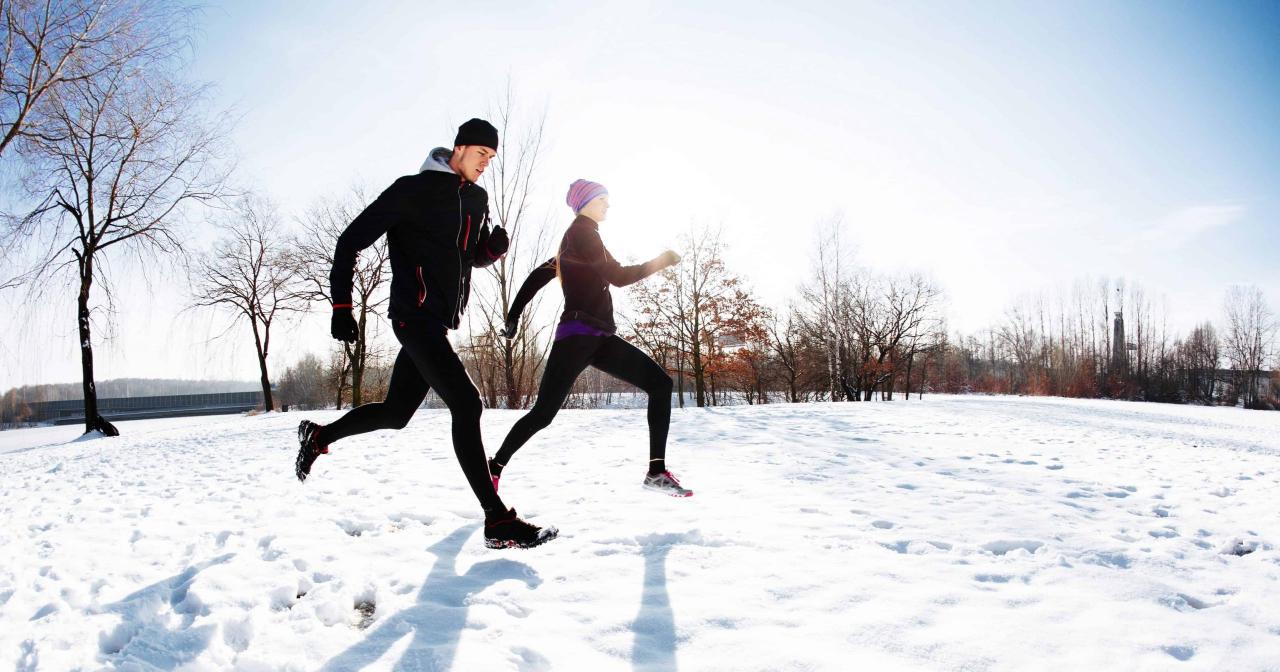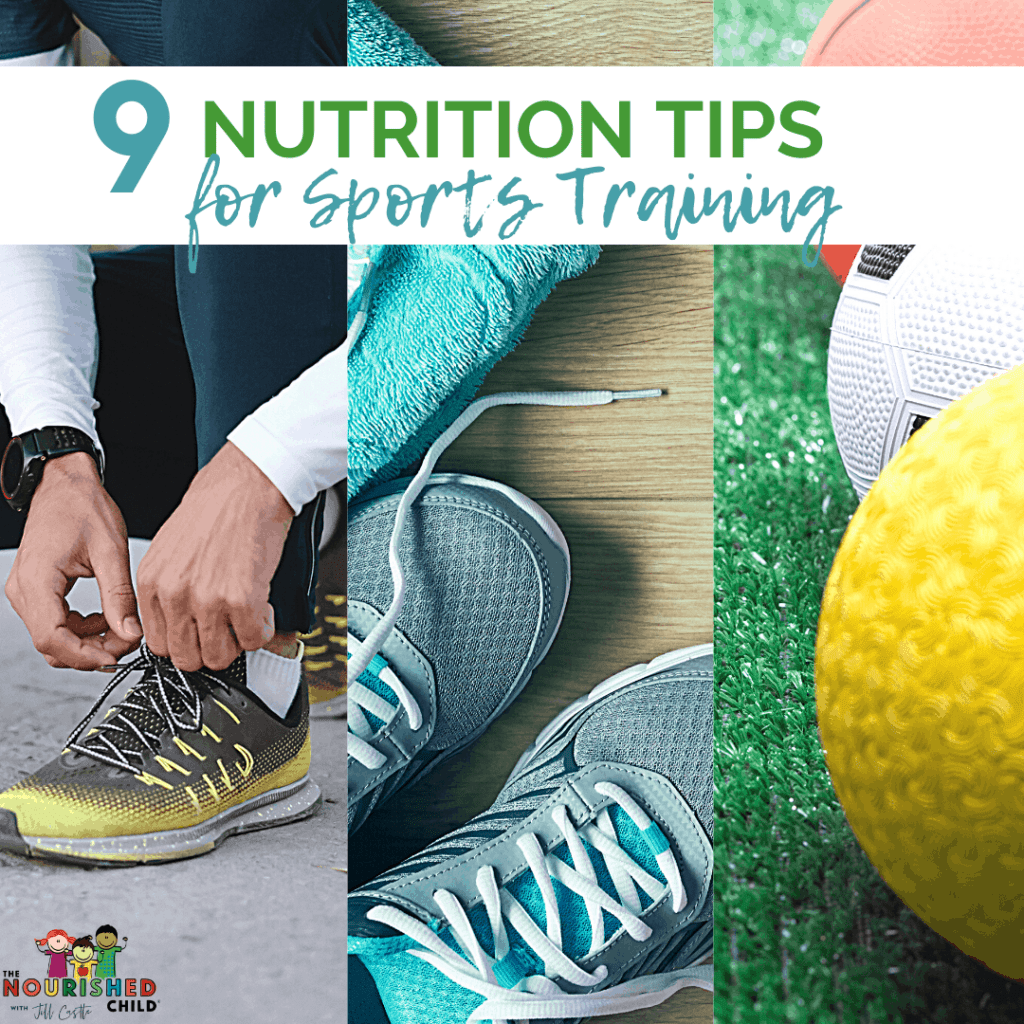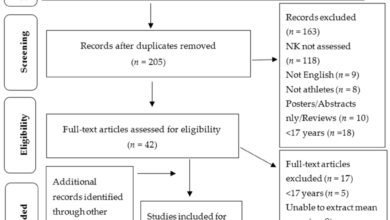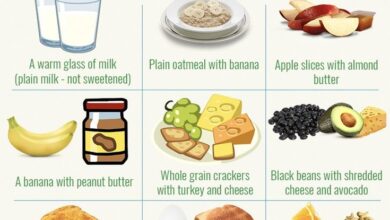
Sports Nutrition Tips Fueling Cold Weather Training
Sports nutrition tips fueling cold weather training are essential for athletes looking to maintain peak performance during the winter months. The cold can impact your body’s energy expenditure and nutrient needs, making it crucial to adjust your diet and hydration strategies.
Imagine this: you’re bundled up in layers, battling the wind and the chill, pushing your limits during a winter workout. But your body isn’t quite cooperating. You’re feeling sluggish, your energy levels are low, and your recovery is slow.
This scenario is common for athletes who don’t fuel their bodies appropriately for cold weather training. By understanding the unique challenges of cold weather training and adjusting your nutrition plan, you can overcome these obstacles and thrive in any season.
The Importance of Proper Nutrition for Cold Weather Training
Training in cold weather presents unique challenges for athletes, demanding a higher energy expenditure and increased nutrient requirements to maintain performance and prevent injuries. Proper nutrition is crucial for athletes to optimize their training adaptations and support their body’s ability to cope with the demands of cold weather training.
The Impact of Cold Weather on Energy Expenditure and Nutrient Needs
Cold weather significantly increases energy expenditure, primarily due to the body’s need to maintain core body temperature. This increased energy demand translates into higher calorie requirements for athletes. Additionally, the body’s metabolism shifts to prioritize heat production, leading to increased reliance on carbohydrates for energy.
Athletes training in cold weather may require an additional 100-200 calories per hour compared to training in moderate temperatures.
Moreover, cold weather can impact nutrient absorption and utilization. The body may experience reduced absorption of certain vitamins and minerals, particularly vitamin D, which is crucial for bone health and immune function.
Challenges Athletes Face in Cold Weather Training
Cold weather poses several challenges for athletes, impacting their performance and recovery.
- Increased risk of dehydration:Athletes may not feel thirsty in cold weather, leading to dehydration, which can negatively affect performance and increase the risk of injuries.
- Impaired muscle function:Cold temperatures can impair muscle function, leading to decreased power output and reduced endurance.
- Increased risk of illness:Cold weather can suppress the immune system, making athletes more susceptible to colds, flu, and other respiratory illnesses.
The Impact of Inadequate Nutrition on Performance and Recovery
Inadequate nutrition can significantly hinder performance and recovery in cold weather training.
- Reduced energy levels:Insufficient calorie intake can lead to fatigue, decreased motivation, and impaired performance.
- Delayed muscle recovery:Insufficient protein intake can delay muscle recovery and increase the risk of injuries.
- Compromised immune function:Deficiencies in vitamins and minerals, such as vitamin C and zinc, can weaken the immune system, making athletes more susceptible to illness.
Post-Workout Recovery Nutrition for Cold Weather Athletes

Training in cold weather can be more demanding on your body, making post-workout recovery nutrition even more critical. The cold can increase your energy expenditure, deplete your glycogen stores faster, and even impair your immune system. This is why it’s crucial to replenish your body with the right nutrients to help your muscles recover, rebuild, and prepare for your next training session.
The Importance of Post-Workout Recovery Nutrition in Cold Weather
Post-workout recovery nutrition in cold weather is crucial for several reasons. Firstly, cold weather can increase your body’s energy expenditure, leading to greater depletion of glycogen stores. Secondly, cold temperatures can negatively impact your immune system, making it essential to replenish nutrients that support immune function.
Keeping your body fueled during cold weather training is crucial, as your body works harder to stay warm. Make sure you’re getting enough calories, especially from complex carbohydrates and healthy fats, to provide sustained energy. And don’t forget about hydration! Remember, even a little bit of movement can make a big difference, and walking can help you live longer even if you’ve never exercised before.
So, even if you can’t get to the gym, take a brisk walk outside to reap the benefits. Then, refuel with a protein-rich snack to help your muscles recover.
Lastly, the cold can also affect blood flow, potentially hindering the delivery of nutrients to muscles for repair and recovery.
Post-Workout Nutrition Strategies
Here are some key strategies for post-workout recovery nutrition in cold weather:
Consume Carbohydrates and Protein
The combination of carbohydrates and protein is essential for post-workout recovery. Carbohydrates replenish glycogen stores, providing energy for muscle repair and recovery. Protein, on the other hand, helps rebuild muscle tissue and promotes muscle growth. Aim for a ratio of 3:1 carbohydrates to protein in your post-workout meal or snack.
Fueling your body during cold weather training is crucial, especially since your metabolism tends to work harder to maintain your core temperature. It’s easy to overeat when you’re feeling chilly, but remember that focusing on maintaining your weight can actually be a key to fat loss goals, as explained in this insightful article: why aiming to maintain weight can actually help fat loss goals.
Stick to nutrient-dense foods like lean proteins, complex carbohydrates, and healthy fats, and prioritize hydration, especially with the added sweat from winter workouts. This approach will ensure you’re providing your body with the energy it needs to perform at its best while also supporting your long-term fat loss goals.
Focus on Nutrient-Rich Foods
Instead of processed snacks, prioritize nutrient-rich foods that provide essential vitamins and minerals for optimal recovery. These include:
- Fruits: Bananas, oranges, and berries are excellent sources of carbohydrates and antioxidants.
- Vegetables: Sweet potatoes, broccoli, and spinach provide complex carbohydrates, vitamins, and minerals.
- Lean Protein: Chicken breast, fish, and tofu are good sources of protein for muscle repair.
- Dairy Products: Yogurt and milk provide protein and calcium, which are essential for bone health.
- Whole Grains: Brown rice, quinoa, and oats provide complex carbohydrates and fiber for sustained energy.
Hydration
Hydration is crucial, especially in cold weather. Cold air is drier, leading to increased water loss through respiration. Ensure you’re drinking plenty of fluids before, during, and after your workout to prevent dehydration.
Timing is Key
The ideal time to consume your post-workout meal or snack is within 30-60 minutes of finishing your workout. This allows your body to quickly absorb nutrients and begin the recovery process.
Examples of Post-Workout Recovery Meals and Snacks
Here are some examples of nutrient-rich meals and snacks that can aid in muscle repair and replenishment:
Meals
- Grilled chicken breast with brown rice and steamed broccoli
- Salmon with roasted sweet potatoes and quinoa
- Lentil soup with whole-wheat bread
Snacks
- Greek yogurt with berries and a sprinkle of granola
- Banana with peanut butter
- Protein shake with fruit and spinach
The Role of Protein and Carbohydrates in Post-Workout Recovery
Protein
Protein is essential for muscle repair and growth. After a workout, your muscles experience microscopic tears. Protein provides the building blocks for repairing these tears and building new muscle tissue.
Staying fueled for cold weather training is crucial, especially when you’re pushing your body to the limit. Remember to prioritize hydration, as cold temperatures can make you feel less thirsty. And don’t forget to include plenty of protein to support muscle recovery.
Speaking of recovery, it’s also important to work on strengthening your core, which acts as your body’s foundation. To avoid common pitfalls, check out this article on 10 mistakes to avoid when training your core. A strong core will help you maintain proper form and prevent injuries, allowing you to train consistently throughout the winter months.
Carbohydrates
Carbohydrates are your body’s primary source of energy. During exercise, your body depletes its glycogen stores, which are stored carbohydrates. Replenishing these stores with carbohydrates after your workout is crucial for energy recovery and muscle function.
Essential Nutrients for Cold Weather Training

When the temperature drops, your body needs to work harder to maintain its core temperature. This increased energy expenditure means that your nutritional needs change as well. To fuel your workouts and aid in recovery, you need to prioritize certain nutrients.
Importance of Carbohydrates
Carbohydrates are your body’s primary source of energy. They provide the fuel your muscles need to perform during your workouts. In cold weather, your body burns more calories to stay warm, so you need to make sure you’re consuming enough carbohydrates to meet this increased energy demand.
- Complex carbohydrates, found in whole grains, fruits, and vegetables, are digested slowly and provide sustained energy throughout your workout.
- Simple carbohydrates, found in sugary foods and drinks, provide a quick burst of energy, but they can cause a rapid spike in blood sugar followed by a crash.
Aim for a carbohydrate intake of 6-10 grams per kilogram of body weight per day.
The Role of Protein
Protein is essential for building and repairing muscle tissue, which is particularly important in cold weather when your muscles are working harder. Protein also helps to regulate your body temperature.
- Lean protein sourceslike chicken, fish, beans, and tofu provide the essential amino acids your body needs to rebuild muscle after exercise.
Aim for a protein intake of 1.2-1.7 grams per kilogram of body weight per day.
Importance of Healthy Fats, Sports nutrition tips fueling cold weather training
Healthy fats are essential for hormone production, cell function, and insulation. They also help to keep you feeling full and satisfied.
- Unsaturated fats, found in avocados, nuts, seeds, and olive oil, are heart-healthy and help to regulate your body temperature.
Aim for a healthy fat intake of 20-30% of your total daily calories.
Hydration is Key
Staying hydrated is crucial in any weather, but it’s especially important in cold weather. Your body loses fluids through sweat, even when you’re not feeling hot, and cold air can dry out your respiratory system.
- Wateris the best way to stay hydrated.
- Sports drinkscan be helpful to replace electrolytes lost through sweat, especially during long workouts.
Aim to drink plenty of fluids throughout the day, especially before, during, and after your workouts.
Importance of Vitamins and Minerals
Vitamins and minerals play a vital role in supporting your immune system, energy production, and overall health. In cold weather, your body needs extra support to fight off colds and other illnesses.
- Vitamin C, found in citrus fruits, berries, and leafy greens, helps to boost your immune system.
- Vitamin D, produced by your body when exposed to sunlight, is essential for bone health and immune function.
- Iron, found in red meat, beans, and leafy greens, helps to carry oxygen throughout your body.
- Zinc, found in oysters, red meat, and beans, is important for immune function and wound healing.
You can get these essential vitamins and minerals from a variety of foods, but consider supplementing if you’re concerned about meeting your needs.
Nutrition Tips for Cold Weather Training: Sports Nutrition Tips Fueling Cold Weather Training
Fueling your body during cold weather training is crucial for maintaining energy levels, preventing injuries, and maximizing performance. Your body requires more energy to stay warm in cold temperatures, so proper nutrition is essential.
Packing Nutritious Snacks and Meals
It’s important to pack snacks and meals that are both nutritious and easy to eat on the go.
- Choose nutrient-dense foods:Opt for snacks and meals that are rich in carbohydrates, protein, and healthy fats. These nutrients provide sustained energy and help with muscle recovery. Examples include:
- Trail mix with nuts, seeds, and dried fruit
- Energy bars with a good balance of protein and carbohydrates
- Sandwiches with lean protein and whole-grain bread
- Fruit and yogurt parfaits
- Pack snacks in insulated containers:To keep snacks fresh and at the right temperature, pack them in insulated containers or bags. This is especially important for perishable items like yogurt or sandwiches.
- Consider pre-made meals:For convenience, consider preparing meals in advance and storing them in reusable containers. This can save time and ensure you have healthy options available.
Meal Planning for Cold Weather Training
Meal planning is essential for ensuring you have the necessary nutrients to support your training.
- Prioritize carbohydrate intake:Carbohydrates are the primary source of energy for your body, and you’ll need to increase your intake during cold weather training. Focus on complex carbohydrates like whole grains, fruits, and vegetables.
- Increase protein intake:Protein is essential for muscle repair and growth. Aim for a higher protein intake than usual, especially after training sessions. Good sources of protein include lean meats, poultry, fish, eggs, beans, and lentils.
- Stay hydrated:Dehydration is more common in cold weather, so it’s important to drink plenty of fluids. Water is the best choice, but you can also consume sports drinks to replenish electrolytes.
- Eat regular meals:Avoid skipping meals, as this can lead to low energy levels and decreased performance.
- Time your meals strategically:Eat a balanced meal 2-3 hours before training, and have a light snack 30-60 minutes before. After training, consume a meal or snack rich in protein and carbohydrates within 30-60 minutes to aid in recovery.
Using Supplements to Support Cold Weather Training
Supplements can be helpful for supporting your nutritional needs during cold weather training, but they should not replace a balanced diet.
- Creatine:Creatine is a naturally occurring compound that can enhance muscle strength and power. It may be beneficial for athletes engaging in high-intensity training.
- BCAAs (Branched-Chain Amino Acids):BCAAs are essential amino acids that play a role in muscle protein synthesis. They may help with muscle recovery and growth.
- Glutamine:Glutamine is a non-essential amino acid that supports immune function and may help with muscle recovery.
- Fish oil:Fish oil is a good source of omega-3 fatty acids, which have anti-inflammatory properties and may help reduce muscle soreness.
It’s important to consult with a healthcare professional or registered dietitian before taking any supplements, especially if you have any underlying medical conditions.
Last Recap

By incorporating these sports nutrition tips fueling cold weather training into your routine, you can ensure your body has the energy, hydration, and nutrients it needs to perform at its best and recover effectively. Don’t let the cold weather hinder your training; embrace it as an opportunity to optimize your nutrition and reach new heights in your athletic endeavors.






